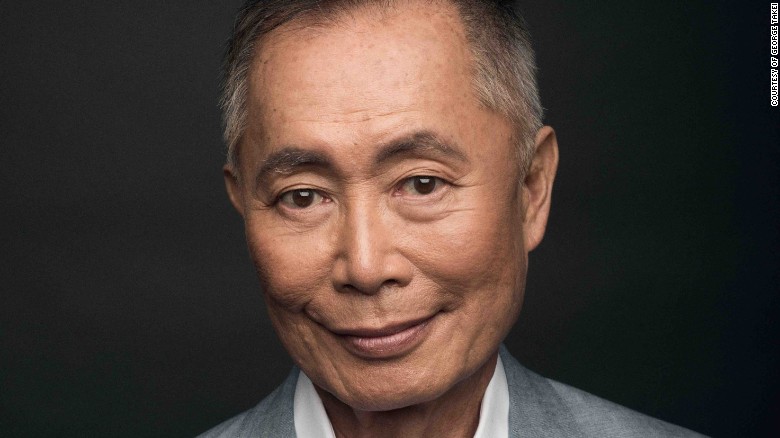Renowned actor and activist George Takei visited UC San Diego this past Thursday to provide his DeWitt Higgs Memorial lecture “Where NO Story Has Gone Before: An Evening with George Takei.”The lecture focused on the long-lasting impact of the Japanese Internment Camps during World War II as well as included Takei’s personal experience and role in social justice movements.
The DeWitt Higgs Memorial Lecture, hosted by the Earl Warren College Law and Society Program, features speakers the program believes to be holding highly-esteemed critical roles in justice, society, and law. Takei was chosen unanimously in July 2017 by the program’s faculty. Takei was the Grand Marshall in Seattle’s Pride Parade in 2014; he has been active in several LGBTQ organizations, as well as the spokesperson for the Human Rights Campaign “Coming Out Project.”
Warren College Provost Emily Roxworthy assisted in planning the 2018 lecture which took place in the Price Center Ballroom.
“George Takei’s standard college/university speaking fee is $55,000, which we paid just as our sister UC campuses, UCSB and UC Davis, and many other peer institutions have done,” Roxworthy said.
Student fees were untouched for the payment, which originated from the “Council of Provosts of the six undergraduate colleges.” 937 tickets were issued, and 700 of them were given free of charge.
“George Takei was selected because his unique personal experience and renowned professional work as an entertainer and activist touches on so many legal and social issues relevant to today, such as the Japanese American internment and its continued relevance to marginalized groups LGBTQIA rights including marriage equality, and the intersection of social media and pop culture with the principles of U.S. democracy,” Roxworthy said.
Takei was introduced by Associated Students President Lesly Figueroa, who briefly described the four acts of the lecture: Takei’s childhood in the Japanese internment camps, his education and early career in “Star Trek: The Original Series,” his participation in the LGBTQ community, and the effects of his social media presence. In 2012 Takei was named “the #1 most influential person on Facebook.”
Takei explained that “the defining event of [his] life was when [he] was a child” at the Japanese internment camps. He described the “stinging irony” of reciting the pledge of allegiance and saying “liberty and justice for all” at the beginning of his school days.
“I couldn’t reconcile those shining ideals — life, liberty, pursuit of happiness — with my imprisonment,” Takei added.
Takei described his challenges of “maintaining a double life” instead of coming out as gay, for fear of ruining his acting career.
“I thought I was the only one, and it was a lonely feeling,” Takei said. “Hiding a double life is a torturous life. When I started pursuing an acting career, I maintained that double life.” He confessed that he did not publicly participate in the Gay Liberation movement until he came out in 2005.
Takei admitted that his reasoning behind coming out was due to former Gov. Arnold Schwarzenegger’s veto of California’s Bill to legalize gay marriage. Takei confronted the California Governor on the Howard Stern Show about the issue.
“I’m very disappointed with you Governor Schwarzenegger because when you ran for office, you made all these moderate statements on various issues,” Takei recounted. “One of them being that you’ve worked with gays and lesbians in the motion picture business, you were very comfortable and you had no problem with it, but when the real moment of truth came … you chose to go against all those things you said during the campaign.”
After the lecture, the audience was able to submit notecards with questions for Takei. Moderator and UCSD alumnus Cara Dessert, chief development and community engagement officer at The Center, a San Diego-based resource center for the LGBTQ community, has worked on several projects concerning immigration, reproductive health, and LGBTQ equality.
“I came to do that because those who came before me broke down those walls and barriers,” Dessert said before turning to Takei to thank him.
One audience member questioned Takei on how exactly social media has made an impact on his aim for equal rights, in which he discussed social media as a “global town square,” a platform serving as a means of mass communication which extends beyond country lines.
“Now we’re discovering there’s a dark underbelly to social media, with these anonymous people called ‘trolls.’ It can be used for good, but the opposite can be used just as effectively,” Takei stated.
Warren freshman Kristin Lee was one of the many fans who attended the talk.
“I thought it was phenomenal,” Lee said. “I enjoyed learning about his background and his speech about LGBTQ rights and everything. He had all the cards stacked against him and all the adversity he overcame — it was just truly incredible to hear him speak.”









Kevin B • May 17, 2018 at 8:44 am
How funny is it that whoever wrote this failed to mention the “Governor Arnold”was an impersonator?
UCstudent • May 12, 2018 at 4:53 pm
I went to that talk and I certainly don’t think that was a good use of $55,000 dollars.